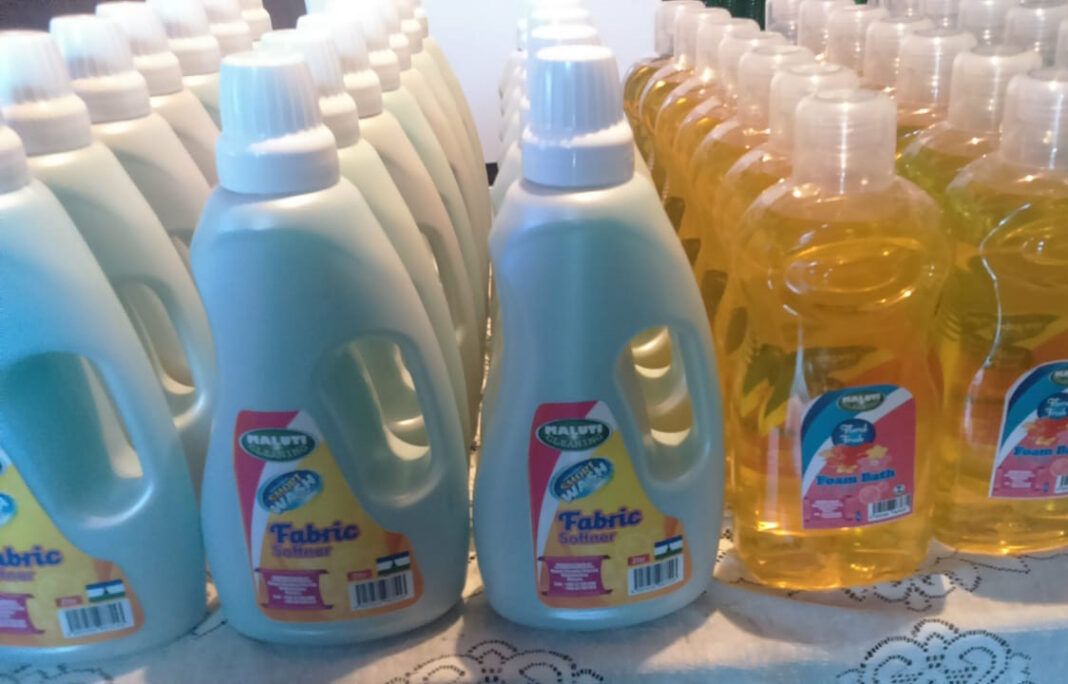By Neo Kolane
A little over two years ago, Khubetsoana couple Tsekiso Morabe (58) and Nthabiseng Lepolesa (34) started toying with the idea to set up a family business.
After much thought and planning, they settled for a detergent production company after they saw an opening in the market. They aptly name the company Maluti Cleaning Products.
They produce bleaches, dish-washing liquids and fabric softeners. The quality of their products is as good as any and, to crown it all, they are reasonably and affordably priced.
This is basically how they identified a niche business opportunity and, as the cliché goes, the rest is history.
Lepolesa told theReporter that the business started operating in September 2018, but their products only hit the shelves in 2020, sold in supermarkets in Maseru.
Morabe noted that, in big supermarkets, Lesotho brands are hardly seen. But when it comes to small supermarkets, the shop owners are always awed when they see local brands, and are more receptive.
“Honestly speaking, when looking for a share in the market, one cannot restrict themselves to local shops or spaza shops, but you rather aim for the big guns. In the light of that, it is only normal for us to want locally produced products to be on the shelves of the mainstream retail.
“I can tell you that what slowed down production was primarily the fact that many people are a bit skeptical and do not support or believe in local products. We have been struggling for the past two years.
“As a result, after we have put our products on the shelves, we keep going back to check on how they are selling. It is a bit strange that, despite the containers bearing our contact numbers, people never call,” Morabe revealed.
According to Lepolesa, their biggest challenge has been during the COVID-19 period. Even though their products were still new in 2019, people were not complaining when they were offered the detergents.
“We would sometimes run out of stock because we were unable to import our chemicals into the country, so we were not able to work,” Lepolesa said.
“The products are safe because they have been chemically tested at the National University of Lesotho and are of top quality, as evidenced by the number of people who keep coming back for more,” Lepolesa explained.
The couple’s future plan is to stockpile the raw chemicals and manufacture in bigger bulk.









